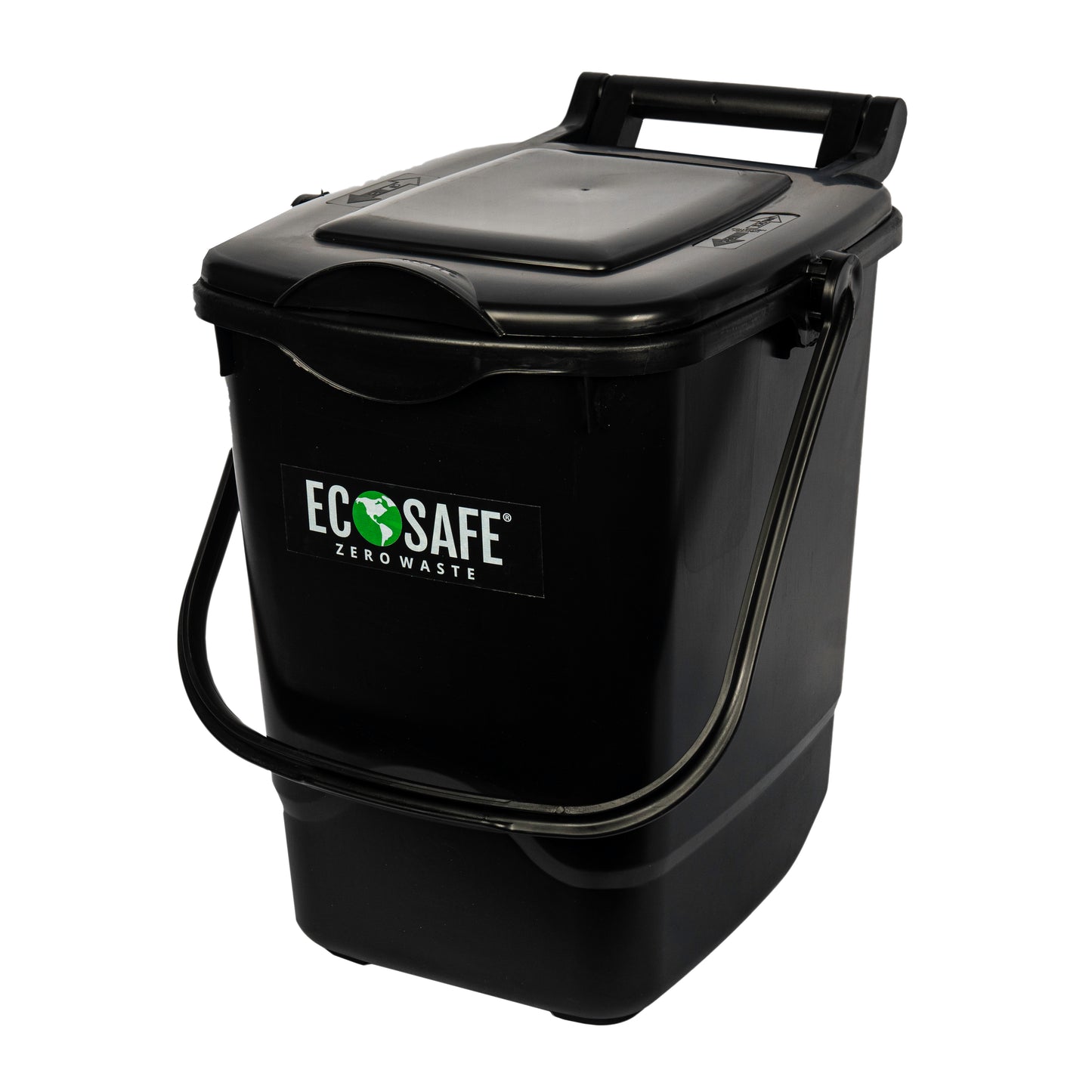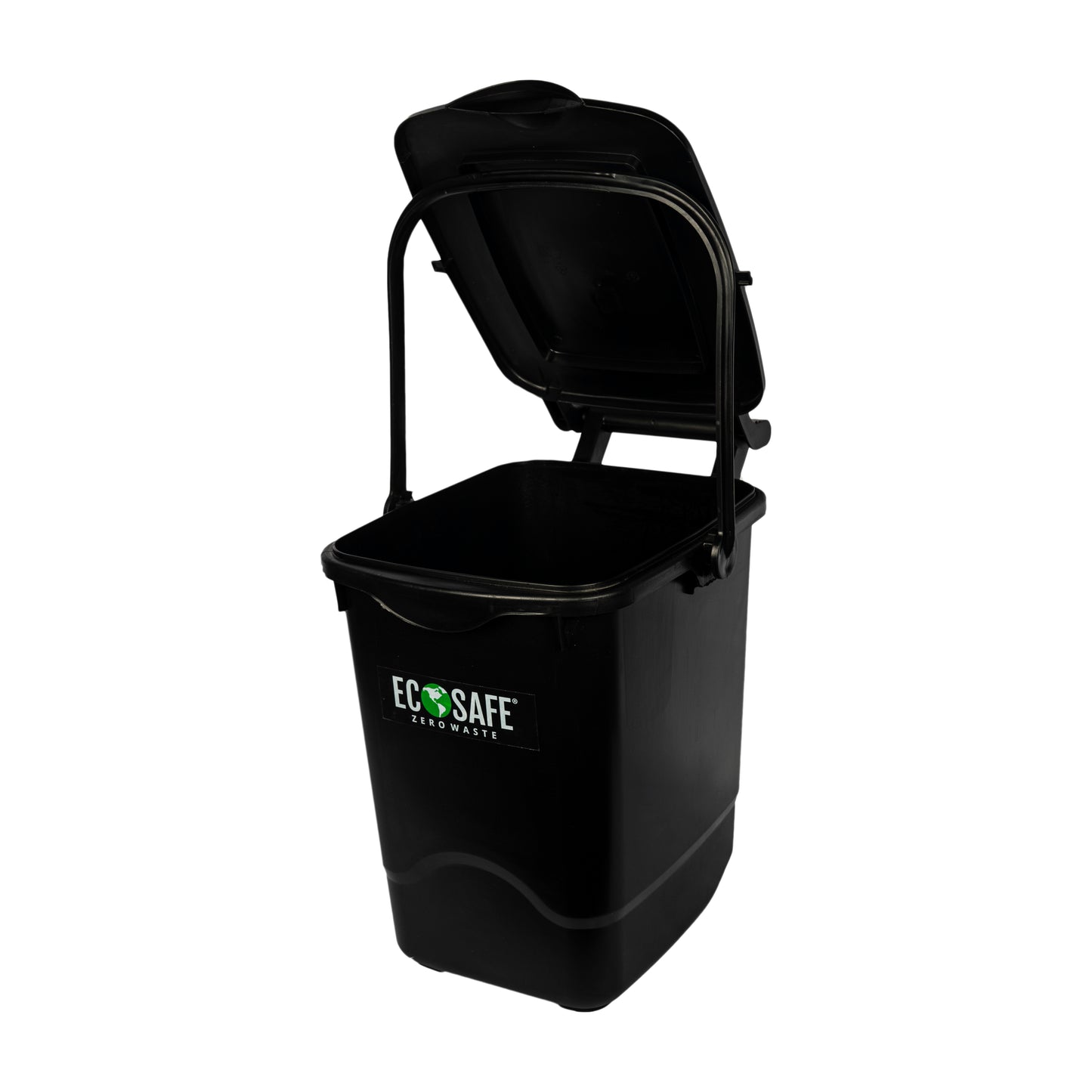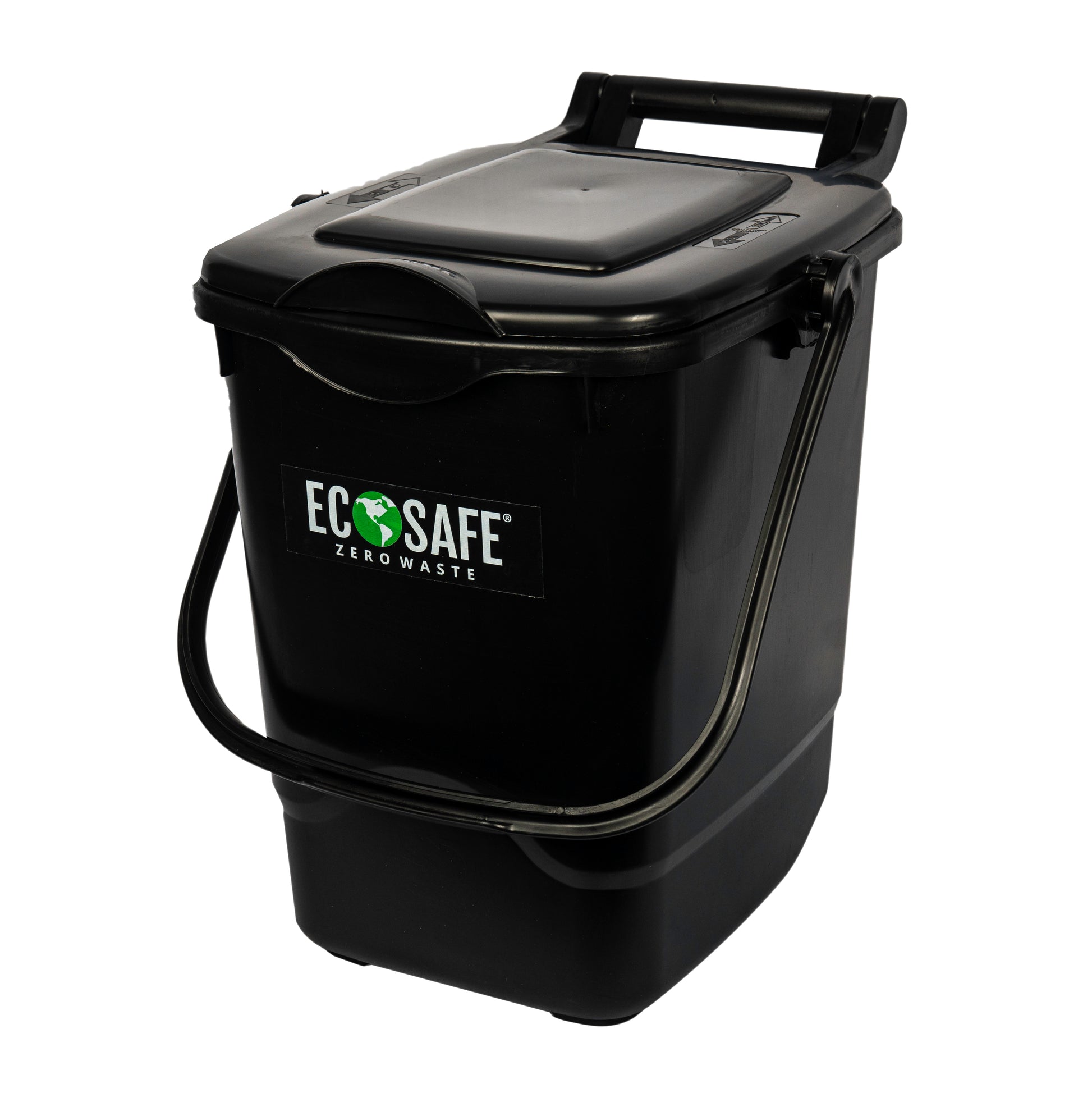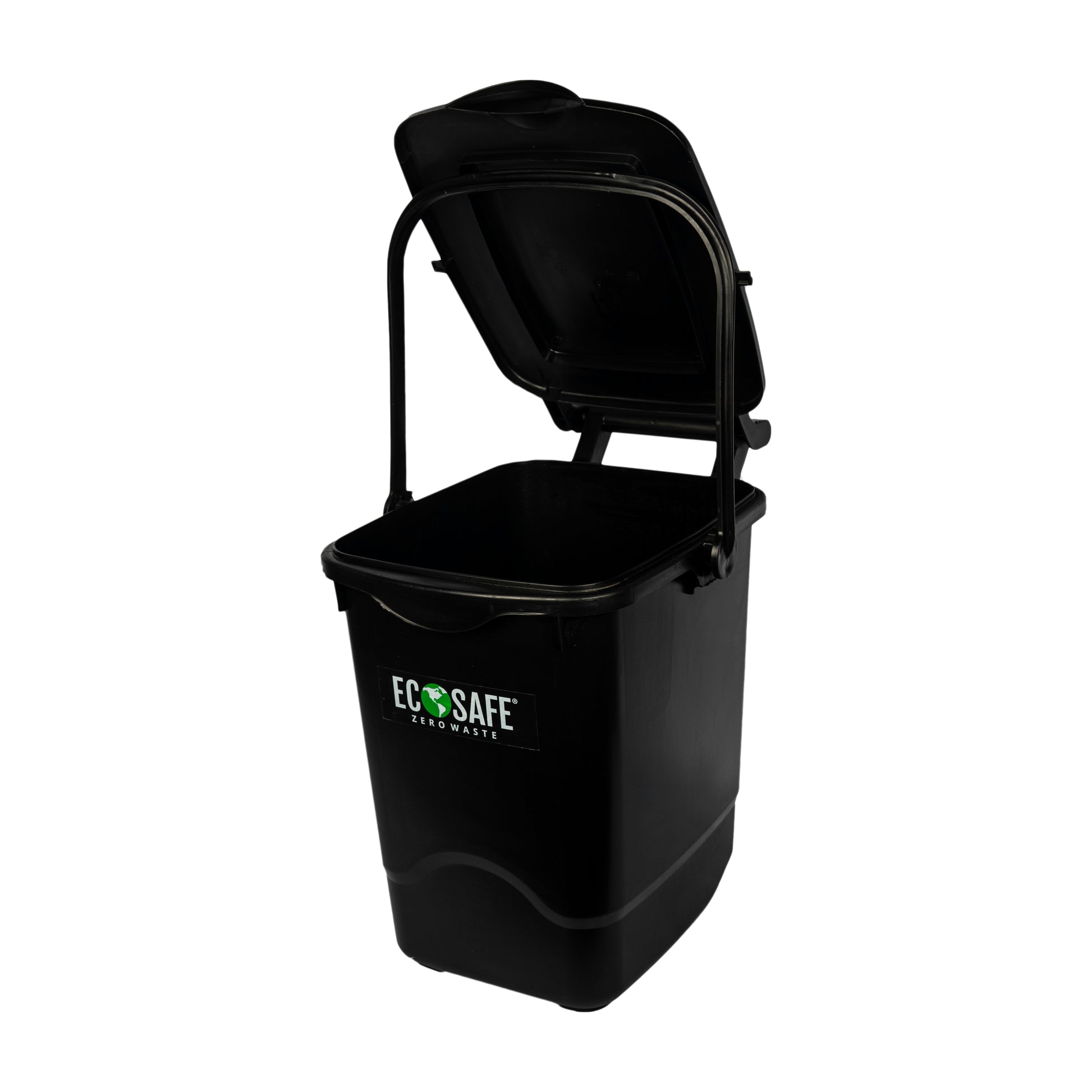Pet Food / Litter Bin - Black
Pet Food / Litter Bin - Black
Couldn't load pickup availability
Smart Storage for Your Furry Friends’ Needs
The EcoSafe® Pet Food / Litter Bin is a sleek, compact solution for storing pet food or managing litter waste with ease. Designed to fit seamlessly into your home, it’s the ideal bin to keep pet care tidy, odor-contained, and stress-free.
Sized to fit EcoSafe’s 16 x 17 compostable bags perfectly, this bin is a great match for daily litter scooping or as a storage bin for dry kibble. Its tight-sealing lid helps minimize odors and keep pests out, while the modern black design blends effortlessly into any room—whether it's the kitchen, laundry area, or mudroom.
Product Details
Product Details
- SKU: ECBLK
- Size: 13x13x16
- Capacity: 6gal/23L
- BINS/PALLET: 1
Features
Features
- Perfect for pet food or daily litter collection
- Compatible with EcoSafe® 16 x 17 compostable bags
- Compact and easy to store under counters or in closets
- Durable, easy-to-clean plastic with a secure-fitting lid
- Helps reduce plastic waste when paired with compostable bags
Whether you're a cat lover managing litter or a dog owner looking for food storage that works and looks good, this bin keeps pet care simple and sustainable.
Certifications
Certifications




